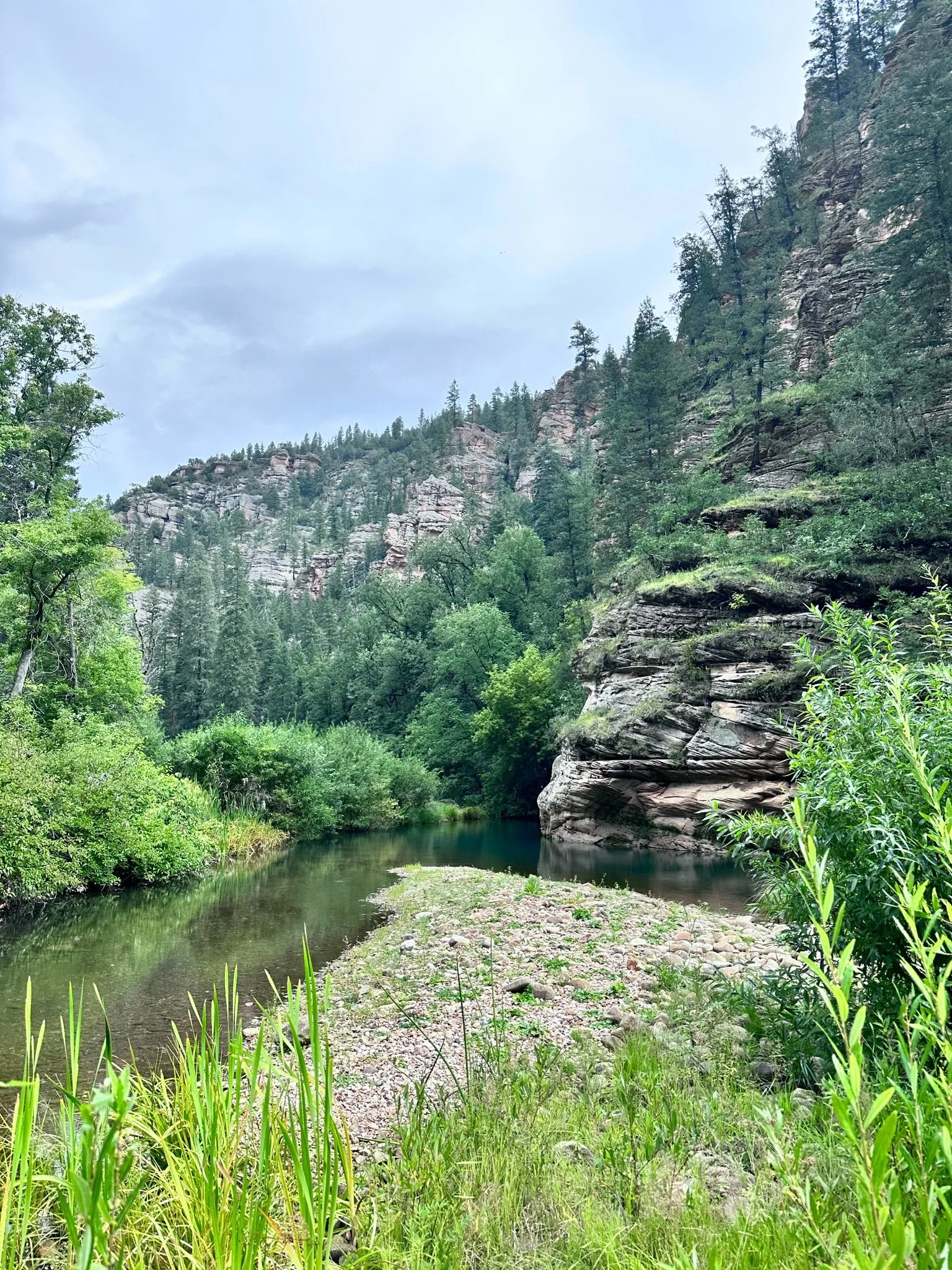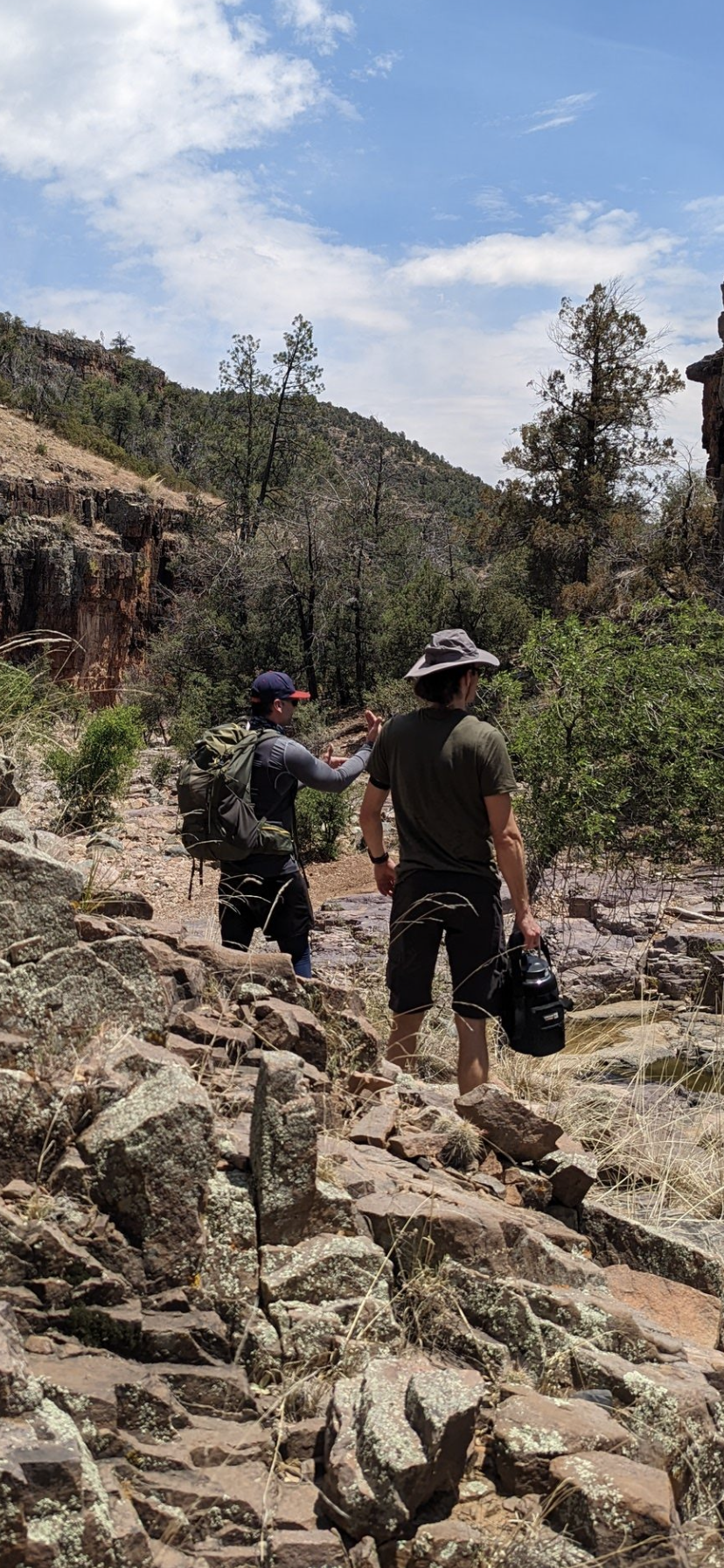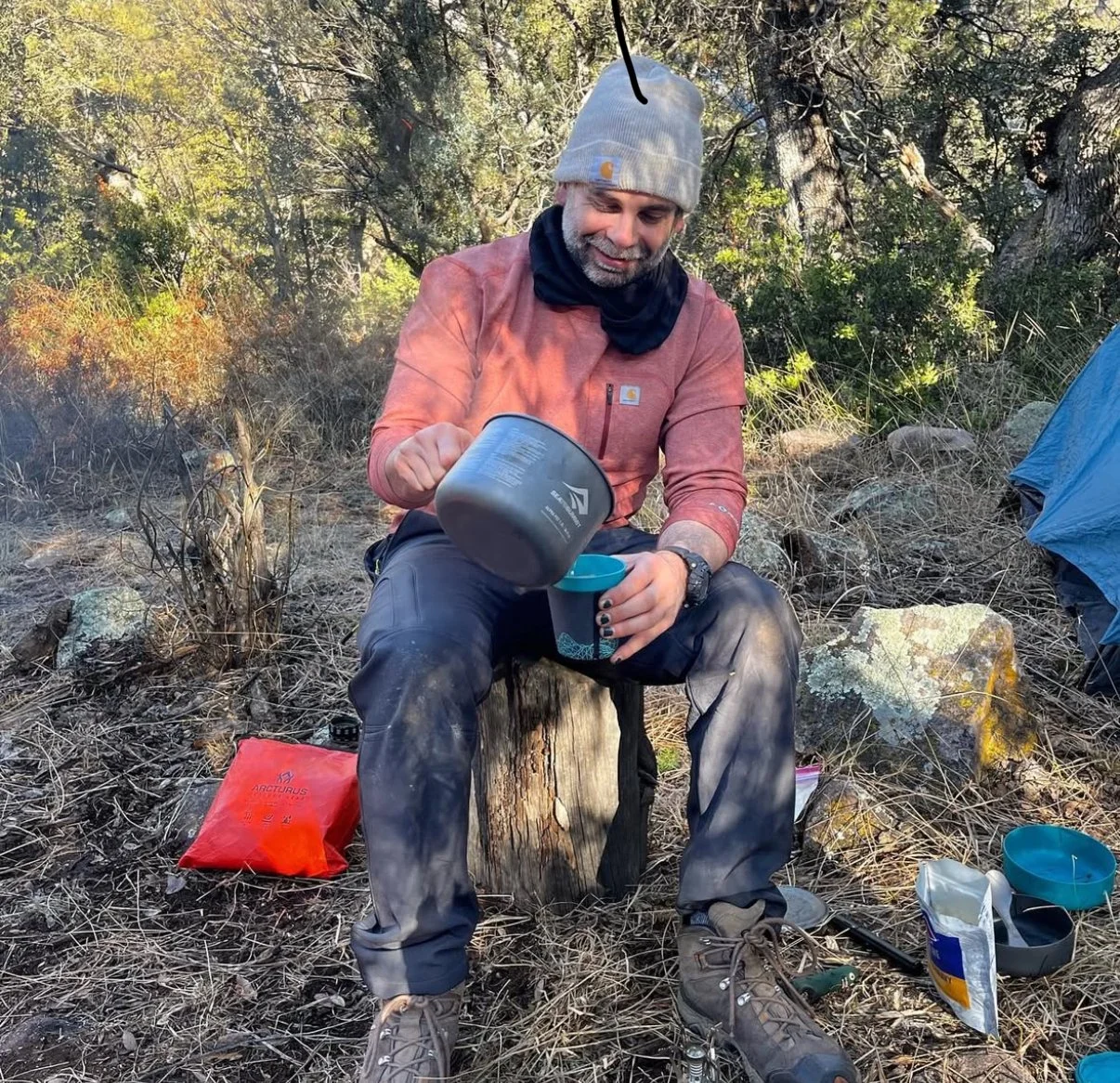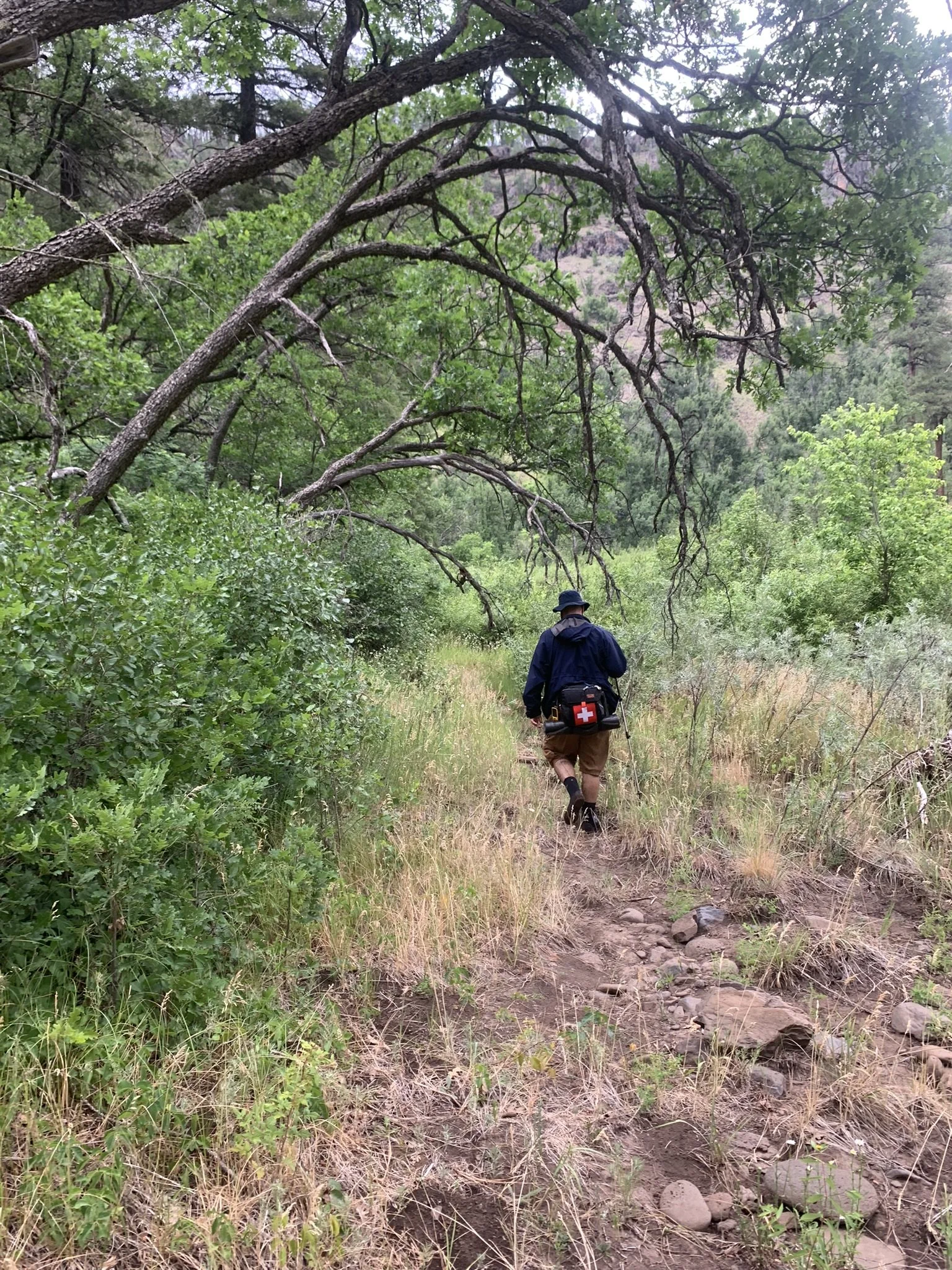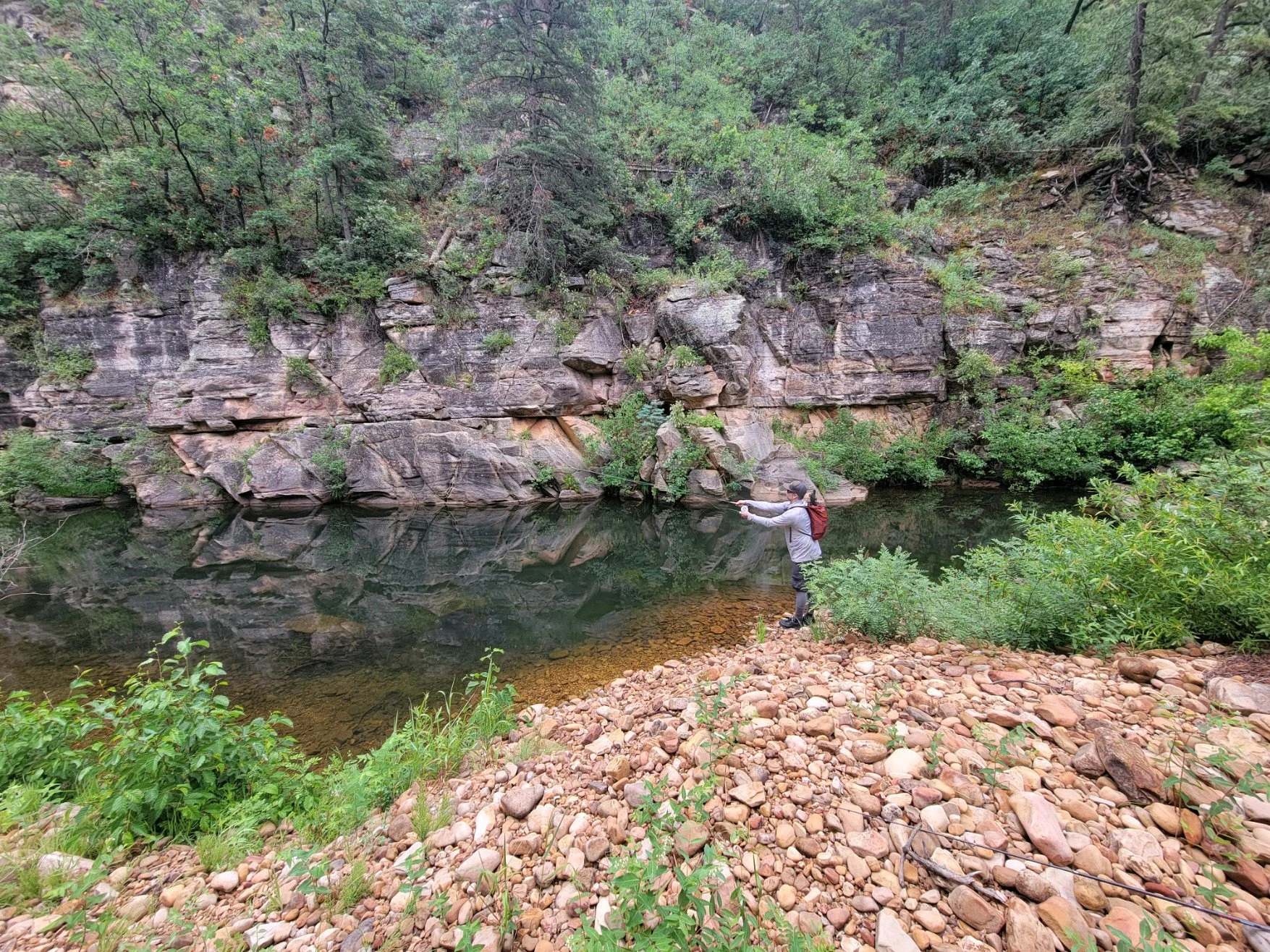
About Us
Christian - Owner & Lead Guide
My Story
Shortly after our family relocated to Arizona, my older brother made the fortuitous decision to buy a used 4x4 truck and arranged a sibling camping trip to the Mogollon Rim. Although I was only 7 at the time, this experience would ignite within me a lifelong love and passion for nature that has changed me in ways I’m only beginning to realize.
That may seem like a cute segue into building a guiding business but I was reluctant to do so when the idea for Backpack Arizona initially started gaining focus.
You see, during the 3 decades following my first camping trip, a lot has changed in the Copper State. The Phoenix metro area has nearly doubled in population, with Phoenix surging from the union’s 9th largest city to 5th.
This growth has resulted in higher traffic than ever before on our public land which hasn’t always led to positive outcomes. Places that once represented retreat and solitude for me had become flooded with newcomers and, on many occasions, disrespected or flat out burned to the ground.
Tired of having my heart broken, I began searching for wild places that would return me to the childlike wonder I felt when first camping. This meant getting as far away as I could from any and all other people because I felt they represented a threat to my goals and the wilderness itself. While this attitude seems extreme in retrospect, it did lead me to something new - Backpacking!
My initial interest in backpacking stemmed from the desire to find the best camping spots that were devoid of humans, and I found them in spades. But despite this borderline arrogant motive, my relationship with nature (and the planet itself for that matter) elevated the more I invested myself into this new hobby.
Perception around time and space became altered when I would enter a backcountry setting on foot. There’s a heightened sense of exuberance felt when relying solely on your physical prowess to arrive at camp versus a motor vehicle.
Covering a single mile in most cities usually translates to a 20-minute walk, but the same is not necessarily true when backpacking. Hiking 1-mile in the wilderness may involve crossing knee deep streams with ankle bending boulders below your feet, enduring overgrown thorn-infested trails, descending / ascending hundreds of feet in elevation, or all three - with a 35lb pack containing your food, water, and shelter for the next 2-3 nights strapped to your back (it could also be raining!).
But due to the sheer amount of time, energy, and resources needed to experience these magical nature destinations, my appreciation for public land skyrocketed and I made the decision to actively protect it.
Backpack Arizona is my attempt to conserve what I love by giving others the opportunity to experience the backcountry the way I have. By doing so, I hope folks will gain a little more appreciation for our natural world and make decisions to its benefit.
The trail this passion project will ultimately travel remains uncertain but the destination is constant and I couldn’t be more excited about the opportunities it may hold. Who knows, maybe some folks will tag along and make the journey all the more special.
One can only dream and I’ll keep dreaming
We’re an equal opportunity provider
In accordance with Federal law and U.S. Department of Agriculture (USDA) civil rights regulations and policies, this institution is prohibited from discriminating on the basis of race, color, national origin, sex, age, disability, and reprisal or retaliation for prior civil rights activity. (Not all prohibited bases apply to all programs.)
Program information may be made available in languages other than English. Persons with disabilities who require alternative means of communication for program information (e.g., Braille, large print, audiotape, and American Sign Language) should contact the responsible State or local Agency that administers the program or USDA’s TARGET Center at (202) 720-2600 (voice and TTY) or contact USDA through the Federal Relay Service at (800) 877-8339.
To file a program discrimination complaint, a complainant should complete a Form AD 3027, USDA Program Discrimination Complaint Form, which can be obtained online, from any USDA office, by calling (866) 632-9992, or by writing a letter addressed to USDA. The letter must contain the complainant’s name, address, telephone number, and a written description of the alleged discriminatory action in sufficient detail to inform the Assistant Secretary for Civil Rights (ASCR) about the nature and date of an alleged civil rights violation. The completed AD-3027 form or letter must be submitted to USDA by: mail: U.S. Department of Agriculture, Office of the Assistant Secretary for Civil Rights, 1400 Independence Avenue, SW, Washington, D.C. 20250-9410; or fax: (833) 256-1665 or (202) 690-7442; email: program.intake@usda.gov.



